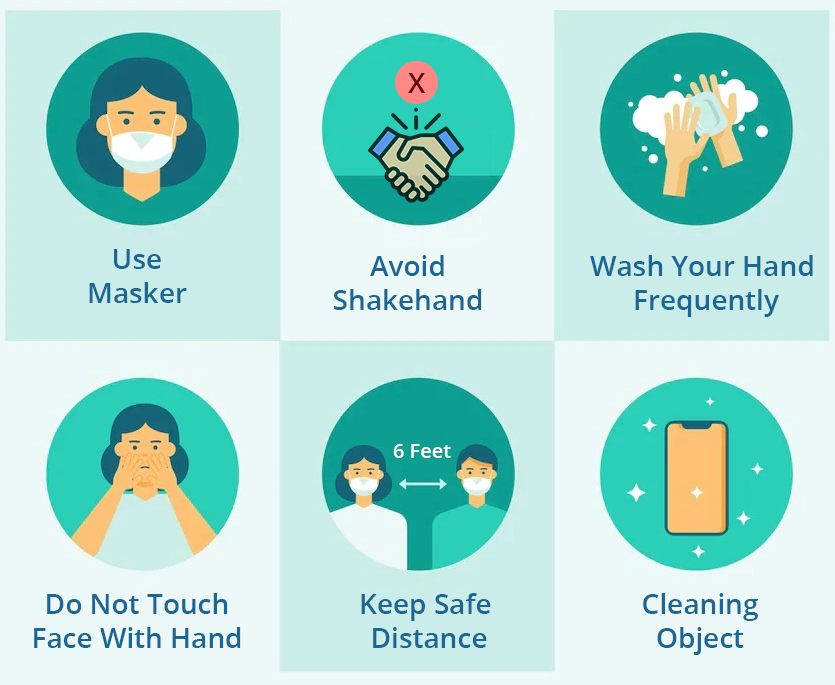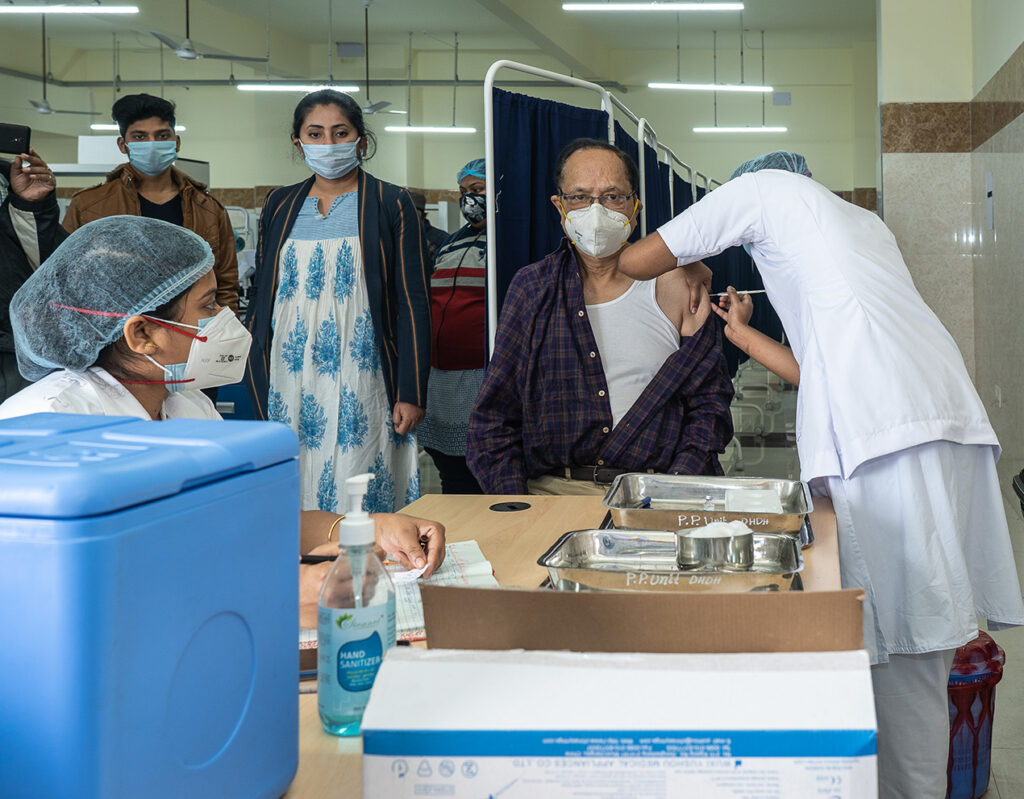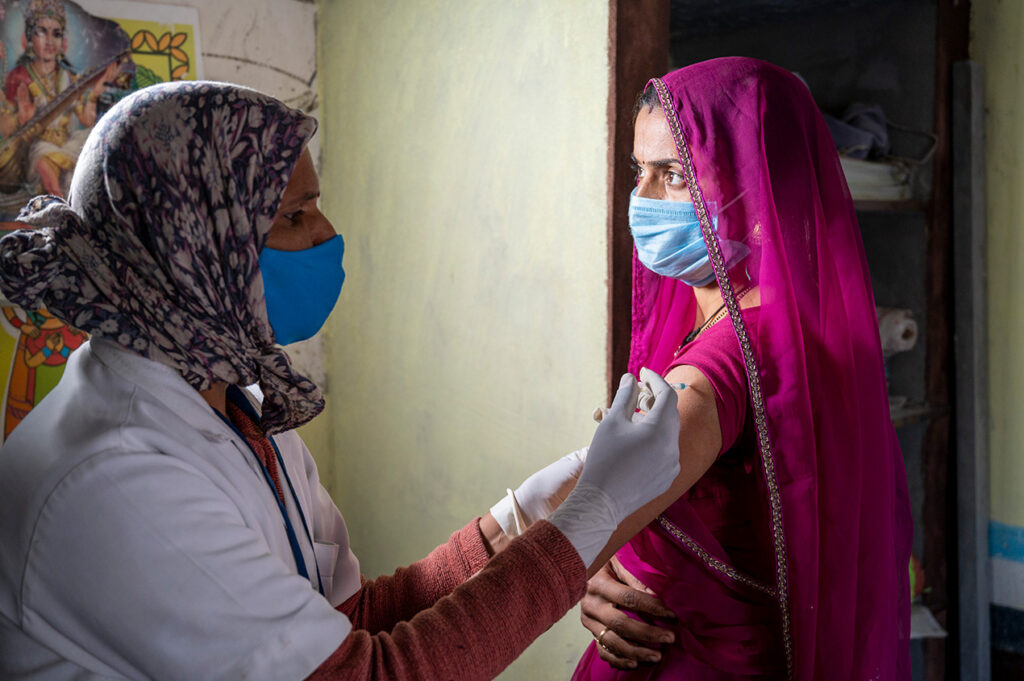ITSU’s role in supporting COVID-19
The ITSU team rapidly scaled-up its role in supporting the health ministry to set up systems and create greater efficiencies in planning and implementing the COVID-19 vaccine roll-out. From smoothening the user experience of Co-WIN app to maintaining data flows, several innovations emerged.
India responded to the COVID-19 pandemic in a prompt and proactive manner. Besides maintaining continued focus on specific interventions to contain the disease, continued delivery of non-COVID essential health services was also ensured. Simultaneously, development of safe and effective vaccines against COVID-19 was pursued. The challenge posed by the pandemic once again proved the country’s significant indigenous capability not just in terms of vaccine manufacturing but also research and development capacity. With the availability of safe and effective COVID-19 vaccines, multiple efforts were constantly made to strengthen and equip the country’s health machinery and delivery mechanisms for expeditious roll-out of the vaccine.
Given ITSU’s strong relationship with the Ministry of Health and Immunization Division and the efficient functioning of the AEFI secretariat within ITSU, the team was assigned the additional mandate of supporting the operationalization of the Co-WIN app, to analyzing data on a continuous hourly basis, tracking and managing AEFIs and setting up a special “War Room” within the Ministry.
The transition of Co-WIN from the COVID-19 Vaccine Intelligence Network was seen as a major achievement in the delivery of the jabs. The tech platform was used for rolling out and scaling up distribution systems for the vaccine. Co-WIN is an extension of the government’s electronic Vaccine Intelligence Network (eVIN), which was launched in 2015 for India’s universal immunization program by the UN Development Programme (UNDP).
It was further refined and recalibrated as a comprehensive cloud-based solution for COVID-19 vaccination in India. While the main portal was the website, the government rolled out the app for use by various administration officials, as well as for adverse events reporting. Co-WIN was linked to existing IT platforms used in the vaccination programme to allow complete end-to-end management of vaccine distribution. This included tracking the transportation of doses from manufacturer to the beneficiary, maintaining digital records of vaccine stocks and remote monitoring of temperature at thousands of dedicated cold chain storage points through a smartphone app. It allowed real-time information on vaccine stocks and storage temperatures across all cold chain points with evolved features like beneficiary registration, session microplanning, real-time reporting of vaccination and issuing of vaccination certificates.
The app also stored information on session allocation and captured details of vaccination to the beneficiary along with information about the next dose before communicating the same digitally. After both doses, a QR code certificate was generated for storing on the government’s DigiLocker app. In case of any AEFI there was provision for real-time reporting through surveillance and action for events following vaccination (SAFEVAC), which too was integrated into the system. Other features included SMS in 12 languages, a 24×7 helpline, chatbot assistance, etc. Many of these functions were supported by ITSU especially related to data collation and analysis.
For ITSU the biggest challenge post October 2020 was in rising to the occasion as the country grappled with COVID-19. ITSU’s support to the MoHFW for COVID-19 differed on many counts. From being responsible for routine immunization for children, the urgent priority now was to help the country ramp up its uptake for the adult vaccines for COVID-19. This was at a time when clinical trials were still ongoing and a new methodology and platform were launched and were yet to become glitch-proof. There was no precedent, precious lives were at stake and there was enormous pressure from the media and international health community.
The ITSU team was quick to set up the data flow experience including onboarding an expanded team of public health experts and data analysts catering to demands for data sharing from multiple agencies at the national and global level. Simultaneously, capacities were being built of teams within ITSU and the MoHFW as also frontline workers to adapt their strengths to the emerging demands of the pandemic as they reviewed and analyzed clinical data to come up with trends in record time. Time was of essence and the ITSU team worked round-the-clock to share data with drug regulators, pharmacovigilance partners and manufacturers in approved formats so that WHO could study these and share them globally.
As the Co-WIN app got streamlined and other data sharing mechanisms refined, a quality management system was set up to improve the AEFI recording process with respect to the COVID-19 vaccine. Communication channels were activated with the internal communications team at JSIPL and external partner agencies like UNICEF.
Setting up the war room for the purpose of media monitoring within the ministry was a major achievement. Managed by ITSU, it received support from WHO and partners who have a good field presence to develop software, getting global data etc. It served a major purpose by way of addressing media concerns and hype around the initial stages of the vaccine roll-out helping quench rumour mongering and rising concerns and building visibility for the efficacy of the COVID-19 vaccines.
- Finalizing the COVID-19 Communication Strategy
- Setting up a dedicated “War room” for media monitoring within the MoHFW
- Advocating with the government to introduce self-reporting within the Co-WIN app
- Setting up a special COVID-19 cell
- Supporting the National AEFI Committee
- Developing communication materials for the launch of COVID-19 vaccination
- Preparing pre-launch and post launch press releases and facilitating training of trainers (ToT)
- Supporting inter-ministerial coordination by mapping line-ministries and dove-tailing their activities with COVID-19 vaccine programme. Also identifying their roles in social mobilization, programme and session management before developing the implementation strategy.
- Developing a concept note and implementation plan for health functionaries for communication management at various levels.
- Hand holding select States in implementing their communication initiatives so that they are aligned with national communication objectives.
- Developing content and design of SBCC/ advocacy/social mobilization materials targeting different population groups.
- Having a strong gender component and undertaking crisis communication management to bridge the AEFI Secretariat and Ministry’s News Monitoring Cell.
- Undertaking documentation of COVID-19 vaccine roll out in India.




